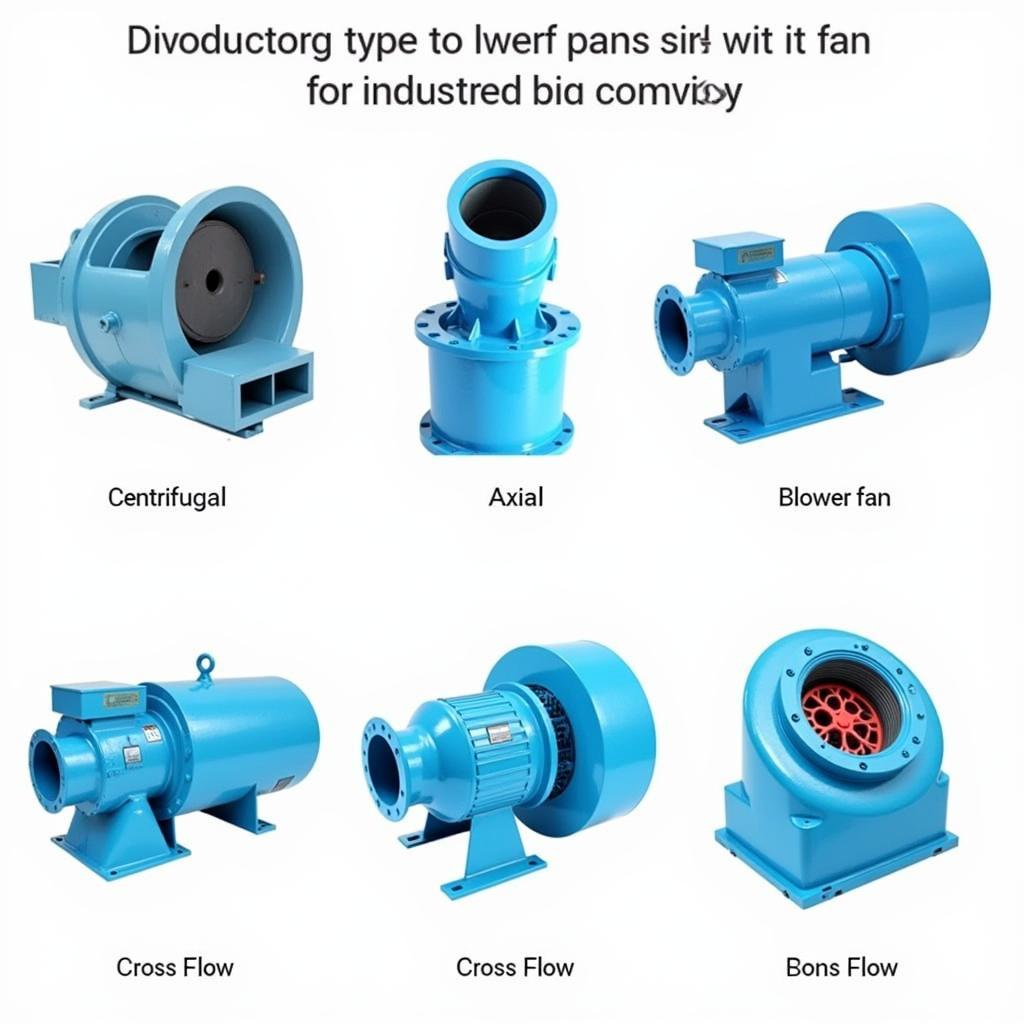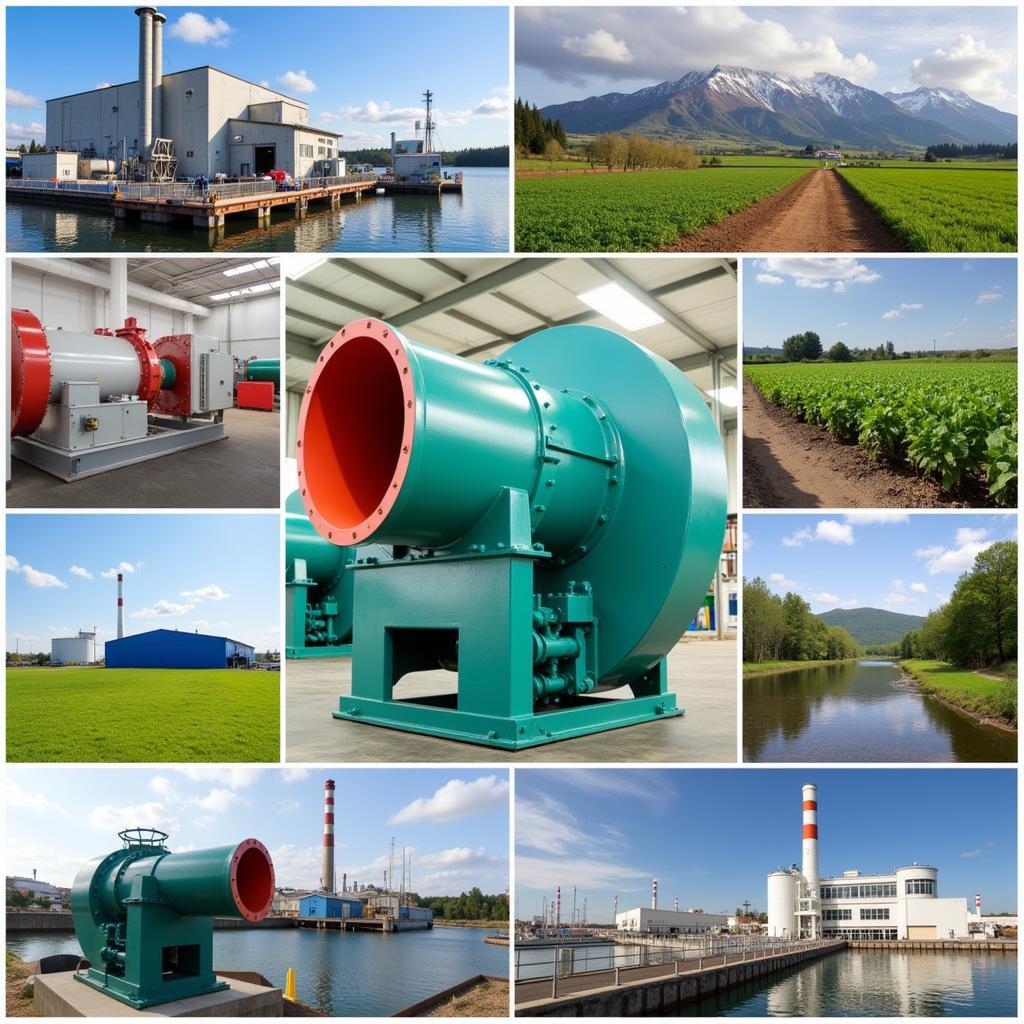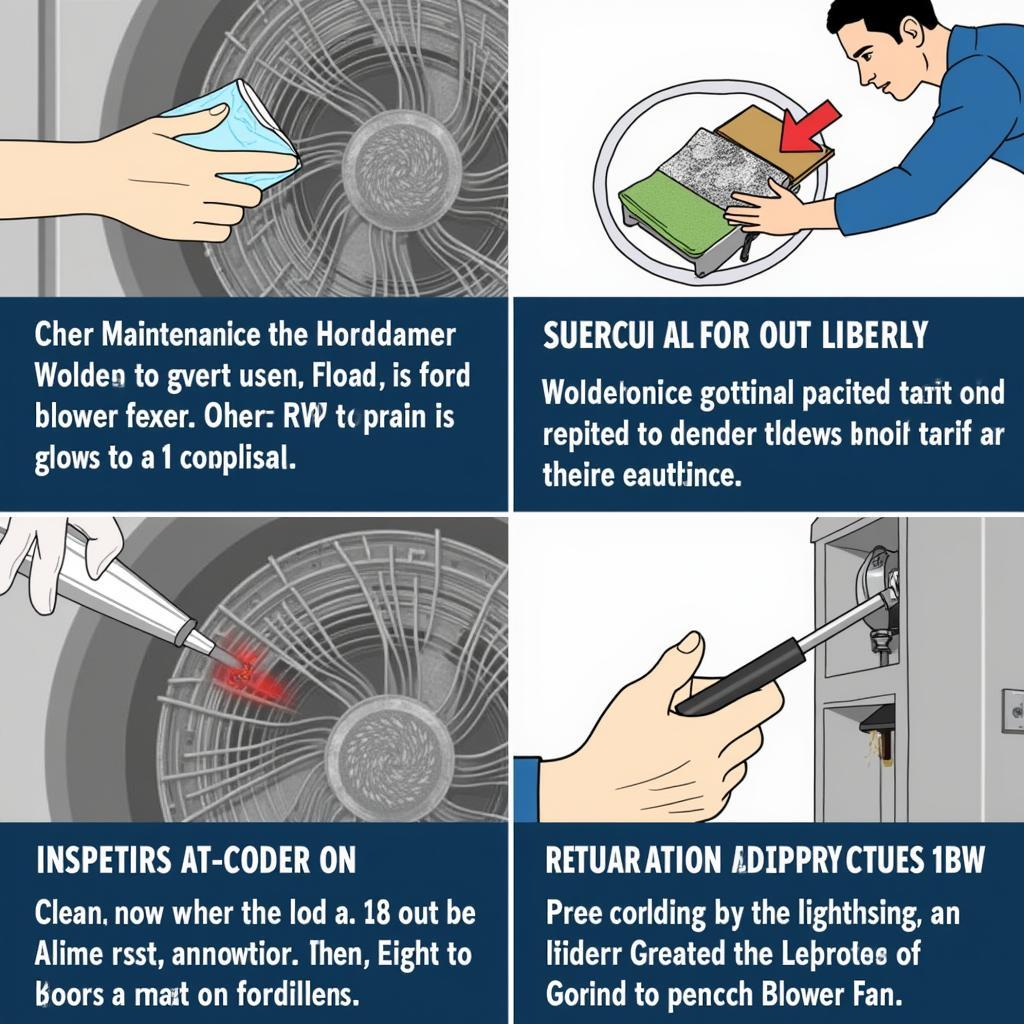Industrial Blower Fans play a critical role in various industrial processes, from ventilation and exhaust to material handling and cooling. Understanding the different types, applications, and factors to consider when selecting an industrial blower fan is crucial for optimizing efficiency, performance, and safety in any industrial setting.
What is an Industrial Blower Fan?
An industrial blower fan is a mechanical device designed to move large volumes of air at moderate pressure. Unlike axial fans, which move air parallel to the fan axis, blower industrial fan utilize a centrifugal force to propel air radially, or perpendicular to the fan axis. This design allows industrial blower fans to generate higher pressures than axial fans, making them suitable for applications requiring significant airflow and pressure capabilities.
 Types of Industrial Blower Fans
Types of Industrial Blower Fans
Types of Industrial Blower Fans
Industrial blower fans come in various types, each suited for specific applications and airflow requirements. Some of the most common types include:
- Centrifugal Blowers: These blowers utilize a rotating impeller with blades to draw air into the center and discharge it radially at a higher velocity and pressure. They are highly efficient and suitable for high-pressure applications like material handling and combustion air supply.
- Axial Blowers: Axial blowers feature blades that force air to move parallel to the shaft, creating airflow in a straight line. They are ideal for applications requiring high volumes of air at relatively low pressure, such as ventilation and cooling.
- Cross-Flow Blowers: Also known as tangential blowers, these fans draw air in axially and discharge it radially across the width of the impeller. They are compact and offer a wide range of airflow options, making them suitable for applications like air curtains and drying systems.
Applications of Industrial Blower Fans
Industrial blower fans find applications in a wide range of industries, including:
- Manufacturing: Ventilation, dust collection, material handling, and cooling in factories and production facilities.
- Agriculture: Grain drying, livestock ventilation, and greenhouse climate control.
- Wastewater Treatment: Aeration of wastewater to promote the growth of bacteria that break down pollutants.
- Mining: Ventilation of underground mines and removal of hazardous gases.
- Power Generation: Cooling of generators, turbines, and other equipment in power plants.
Factors to Consider When Selecting an Industrial Blower Fan
Choosing the right industrial blower fan is crucial for optimal performance, energy efficiency, and safety. Key factors to consider include:
- Airflow Rate: Determine the required volume of air to be moved, typically measured in cubic feet per minute (CFM) or cubic meters per hour (m3/h).
- Static Pressure: Calculate the resistance the fan needs to overcome to move air through the system, measured in inches of water gauge (in. wg) or Pascals (Pa).
- Power Requirements: Consider the fan’s power consumption and choose an energy-efficient model to minimize operating costs.
- Noise Level: Evaluate the noise generated by the fan, especially in noise-sensitive environments.
- Operating Environment: Select a fan compatible with the specific environmental conditions, such as temperature, humidity, and dust levels.
 Applications of Industrial Blower Fans in Different Industries
Applications of Industrial Blower Fans in Different Industries
Maintaining Your Industrial Blower Fan
Regular maintenance is essential to ensure the longevity, efficiency, and safe operation of your industrial blower fan. Key maintenance tasks include:
- Cleaning: Regularly remove dust, debris, and other contaminants from the fan blades, housing, and motor.
- Lubrication: Lubricate bearings and other moving parts according to the manufacturer’s recommendations.
- Inspection: Inspect the fan for signs of wear and tear, such as damaged blades, loose connections, or unusual noise.
- Vibration Monitoring: Implement vibration monitoring to detect potential issues early on and prevent costly downtime.
How to Choose Between Industrial Fans & Blowers?
Choosing between industrial fans & blowers depends on the specific application and airflow requirements. Blowers are generally more suitable for applications requiring higher pressure and lower airflow, while fans are ideal for moving larger volumes of air at lower pressures. Consulting with a qualified HVAC engineer or fan specialist can help determine the best option for your specific needs.
 Maintaining an Industrial Blower Fan for Optimal Performance
Maintaining an Industrial Blower Fan for Optimal Performance
Conclusion
Industrial blower fans are indispensable components in various industrial processes, providing efficient air movement for ventilation, exhaust, cooling, and material handling. Understanding the different types, applications, and factors to consider when selecting and maintaining an industrial blower fan is crucial for optimizing performance, efficiency, and safety in any industrial setting. Remember to consult with experienced professionals to determine the most suitable industrial blower fan for your specific needs and ensure its proper installation and maintenance for long-lasting and reliable operation.
FAQ
What is the difference between a blower and a fan?
Blowers typically handle higher pressures and lower air volumes, while fans move larger amounts of air at lower pressures.
How often should I clean my industrial blower fan?
Cleaning frequency depends on the operating environment. Dusty environments may require cleaning every few weeks, while cleaner settings allow for less frequent cleaning.
What are the signs of a failing industrial blower fan?
Unusual noise, excessive vibration, overheating, and decreased airflow can indicate a failing fan.
Can I install an industrial blower fan myself?
It’s recommended to have a qualified technician install the fan to ensure proper wiring, balancing, and safety precautions.
Where can I find replacement parts for my industrial blower fan?
Contact the fan manufacturer or an authorized distributor for genuine replacement parts.
What are the latest advancements in industrial blower fan technology?
Recent advancements include energy-efficient motors, variable frequency drives (VFDs) for precise airflow control, and smart sensors for monitoring performance and predicting maintenance needs.
How can I improve the energy efficiency of my industrial blower fan system?
Using VFDs, optimizing ductwork design, and regularly cleaning the fan can significantly improve energy efficiency.
Need Help?
For any questions or assistance regarding industrial blower fans, feel free to contact us. Our team of experts is available 24/7 to help you make informed decisions and find the best solutions for your industrial ventilation needs.
Contact Information:
Phone Number: 0903426737
Email: fansbongda@gmail.com
Address: To 9, Khu 6, Phuong Gieng Day, Thanh Pho Ha Long, Gieng Day, Ha Long, Quang Ninh, Vietnam.


